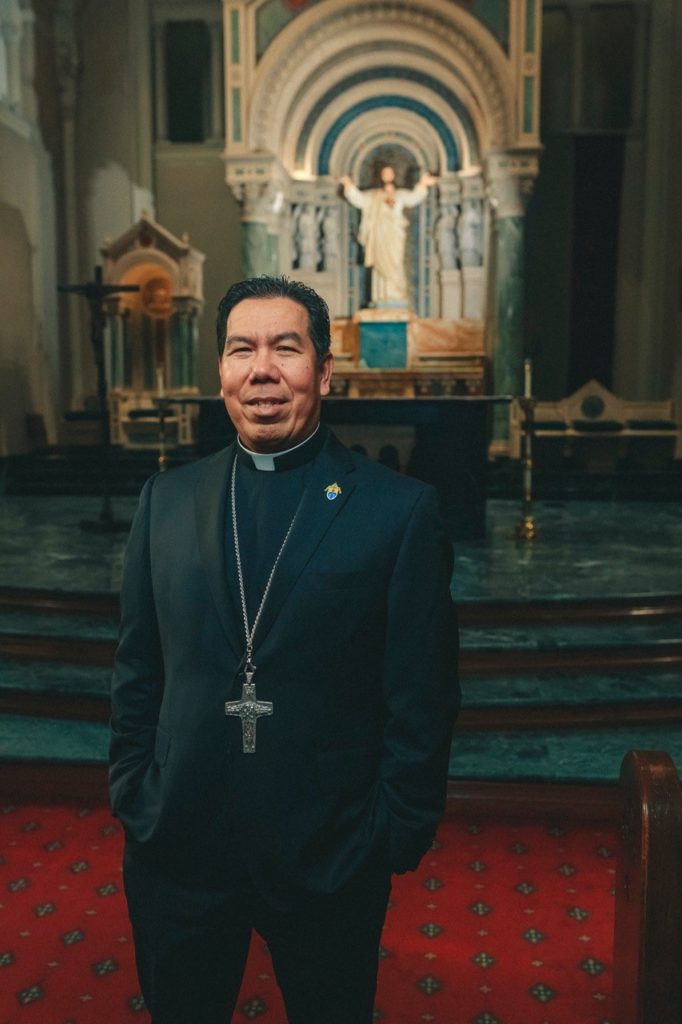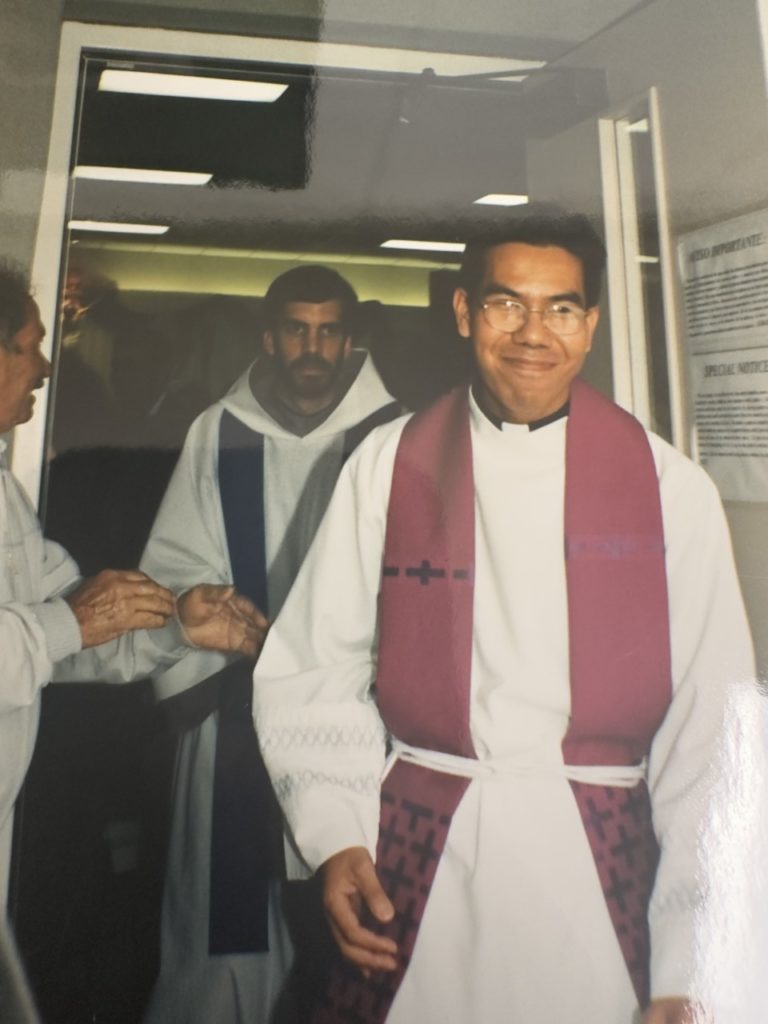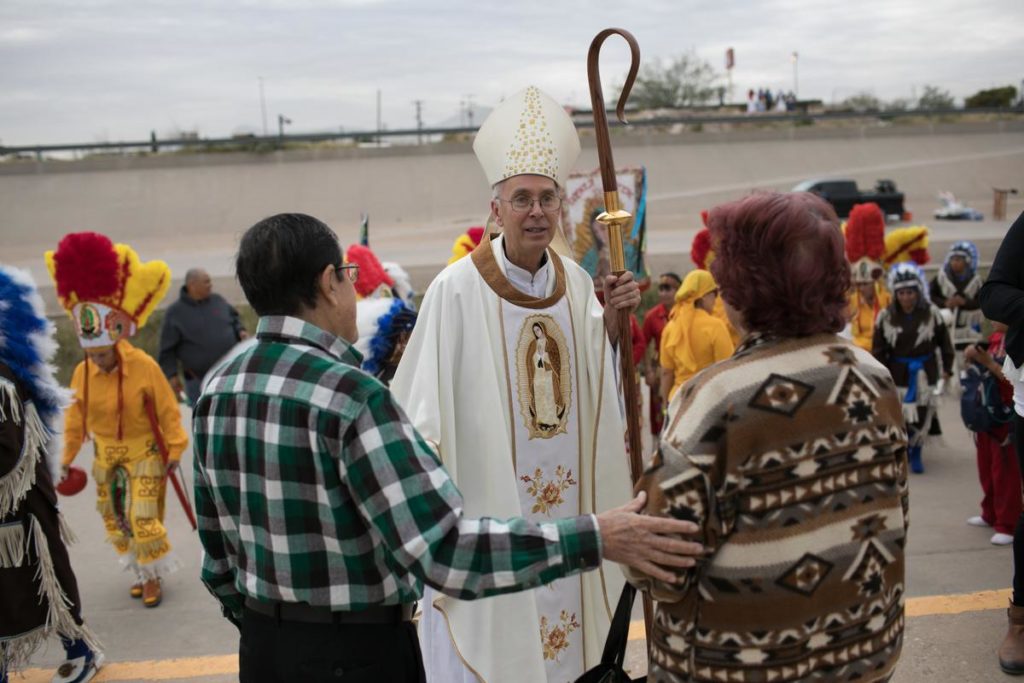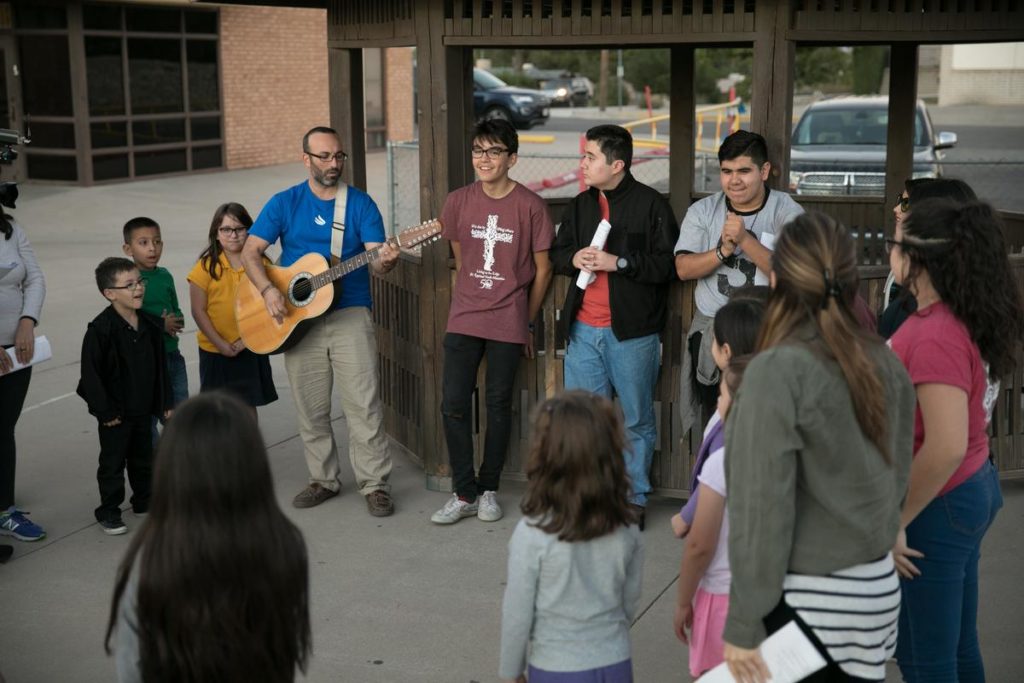Each year Catholic Extension Society supports the education 400 to 500 seminarians because it is an enormous expense for financially poor dioceses that they cannot afford. On occasion, it turns out, Extension donors are not only educating future priests, but future bishops.
This was the case for Bishop Anthony Celino, the first auxiliary bishop of the Diocese of El Paso. He was ordained on Friday, March 31, at St. Patrick’s Cathedral. He became the 10th active bishop whose seminarian education has been funded by Extension. He will also be the third Filipino to be elected a bishop in the United States.
He now joins the likes of Bishop Anthony B. Taylor of Little Rock, Arkansas, Bishop Robert W. Marshall, Jr. of Alexandria, Louisiana, Bishop Eusebio Ramos Morales of Caguas, Puerto Rico, and a half dozen other active bishops who began their priestly journey with Catholic Extension Society support.

I truly believe in the mission of the Church that Extension is part of in a big way.”
After funding Bishop Celino’s education at St. Mary of the Lake/Mundelein Seminary in Chicago, Catholic Extension Society also supported several of the parishes and ministries where he has served since being ordained a priest in 1997.
In a recent interview with Catholic Extension Society, Bishop Celino reflected, “First and foremost, I would like to express my gratitude to Extension and of course the donors who reach so many places in our country. Catholic Extension Society has been a wonderful partner for the Diocese of El Paso through the years. I hope the support and partnership that we have continues. We are grateful and we continue to pray for all of you. As an auxiliary bishop I am very happy to continue this mission and to support it. I truly believe in the mission of the Church that Extension is part of in a big way, especially in our rural areas. So please help us build churches in rural areas and supporting priests.”

Formed by great mentors
When a new bishop is ordained, people commonly want to know how he will lead.
Bishop Celino talked about those who have mentored him and helped shape his pastoral vision.
First, the lay people of his diocese, he says, have taught him so much, especially in the rural areas of West Texas. He spent a year at Our Lady of Peace in Alpine, Texas, a rural parish that encompasses many missions spread out over vast distances. The people’s faith, their simplicity, their love for the Church and their hospitality toward priests are more than fond memories, but foundational experiences for him.
His ministry covered a 150-mile radius around Alpine, which required him to be on the road a lot.
He said,
Back in the good old days, priests were on horseback. We were on pickup trucks.”
The map below shows the distance between the communities he served, including Alpine, Marfa, Valentine, Fort Davis, Marathon and Big Bend National Park.
Despite the distances across West Texas, there was a closeness among the people.
“Families drove me to different communities because they would say, ‘You cannot just be driving by yourself. Something might happen along the way.’ There’s a beauty of ministering there. The Church there is small but dynamic.”
He would see people’s unity during funerals. “The whole town just comes together … we assisted [families] in their grief, but also made sure that the community was there for them.”
Another great mentor in Bishop Celino’s priestly ministry has been his own bishop of El Paso, Mark Seitz, who was Pope Francis’ first U.S.-appointed bishop in 2013. Bishop Mark Seitz is known as a pastor of the people, and a shepherd who continually gravitates toward the peripheries.

Celino says, “I’ve always admired the work of our bishop, here in the diocese and beyond. His influence and moral voice have transcended the Diocese of El Paso. When he became bishop, he appointed me as his vicar general. So I worked alongside him in so many ways and admired his work and his commitment, not only to serving the Diocese of El Paso, but also his commitment to helping the community, especially those who are in the margins of the community: the immigrants, and those who are seeking asylum or refuge here in the country. That is something that I believe in and that I hope to help him in, that advocacy to promote a better life for those who are seeking it.”
Although he admired Seitz and worked closely with him, actually becoming a bishop himself was the farthest thing from Celino’s mind.
He said, “When the apostolic nuncio called me, I actually ignored the call and there were four missed calls on my cell phone. Eventually, or course, the nuncio was able to get ahold of me. And I never felt more trust in God than I have at this moment in my life. I have a sense that the spirit of God is at work in all of this. The Holy Spirit is at work in my life at this time.”
A bishop with optimism
Bishop Celino expresses optimism about the future of the Church in El Paso. Just as the faithful formed him as a priest, it is the faithful of El Paso who give him hope as a new bishop.
“I think the people in this diocese are what makes this place special, most of all. It is a very welcoming community, diverse and dynamic in so many ways, but very welcoming. El Paso is a large city with that small town feel.”

“It’s a thriving community where, once again, we’re building churches on the east side and on the west side of the city. Being in the borderland is a wonderful thing. There’s so much opportunity for ministries here.”
He feels abundantly blessed not only to be in El Paso, but to have been called to serve now as auxiliary bishop where he will serve alongside Bishop Seitz as a shepherd to all.
“I feel a great sense of gratitude, not only to God, but also to the Holy Father for Bishop Mark Seitz and the people of God here in El Paso, for his confidence for appointing me as auxiliary bishop. I’m really looking forward to visiting parishes once again and being a pastor for the whole diocese.”


